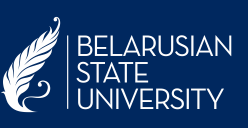
 |
Ïåäàãîãèêà èíôîðìàòèêè |
PEDAGOGY OF COMPUTER SCIENCE |
ISSN 2708-4124 |
|
ARTIFICIAL INTELLIGENCE IN E-LEARNING V.V. Kazachenok, A.A. Rusakov FULL TEXT: PDF (Rus) Abstract The main types of artificial intelligence (AI) are considered: Narrow, General, Super, and the timing of their practical application is predicted.
Key words Artificial intelligence, intelligent technologies, training, education. Received: 06/25/2024; accepted for publication: 07/07/2024. For citation: ________________________________________ Kazachenok V.V., Rusakov A.A. Artificial intelligence in e-learning. Electronic scientific and methodological journal “Pedagogy of computer science”. 2024;1-2. Http://pcs.bsu.by/2024_1-2/1ru.pdf Content is available under license Creative Commons Attribution-NonCommercial-ShareAlike 4.0 International License. V. V. Kazachonak
About the authors: A. A. Rusakov
References 1. Rodzin S.I. Iskusstvennyy intellekt. Taganrog: IKTIB YUFU, 2015. 148 p. (In Russian) 2. Iskusstvennyy intellekt skoro zakhvatit mir i nikto etomu ne pomeshayet! InfoVolna. 2023. [Electronic resource]. Available at: https://dzen.ru/a/ZXFh6fyuazkoiWc_ (In Russian) 3. AI v obuchenii: na chto sposobny tekhnologii uzhe seychas? EduTech. 2022; 4[49]:1-60. (In Russian) 4. Iskusstvennyy intellekt. Obzory programm i tekhnologiy [Electronic resource]. Available at: https://www.kp.ru/expert/elektronika/iskusstvennyj-intellekt/ (In Russian) 5. Magonin D. AI v 2023 godu: kak razvivayetsya iskusstvennyy intellekt. [Electronic resource]. Available at: https://netology.ru/blog/03-2023-ai-trends?ysclid=lqwhiarsmt764903433 (In Russian) 6. Finn V. Daleko ne vse funktsii yestestvennogo intellekta mogut byt' formalizovany i avtomatizirovany. Kommersant" [Electronic resource]. Available at: https://www.kommersant.ru/doc/4198609 (In Russian) 7. Rusakov A.A., Kazachenok V.V. Obucheniye matematike i informatike v usloviyakh informatizatsii obrazovaniya. Scientific and methodological journal "Pedagogy of computer science". 2023; 1-2:1-14. [Electronic resource]. Available at: Https://pcs.bsu.by/2023_1-2/n1.html (In Russian) 8. Myao F., Kholms U., Khuan ZH., Chzhan KH. Tekhnologii iskusstvennogo intellekta v obrazovanii [Artificial intelligence technologies in education]. Moskva: IITO YUNESKO, 2020. 56 p. (In Russian) 9. Alekseyeva Ye.A. Vozmozhen li iskusstvennyy prepodavatel'? Tekhnologos. 2020; 4:40–55. DOI: 10.15593/perm.kipf/2020.4.04 (In Russian) 10. Kazachenok V.V. Upravlyayemoye samoobucheniye uchashchikhsya resheniyu zadach uglublennogo kursa matematiki sredstvami sovremennykh informatsionnykh tekhnologiy. Minsk: BGU, 2006. 247 p. (In Russian) 11. Iskusstvennyy intellekt v obrazovanii: Izmeneniye tempov obucheniya [Artificial Intelligence in Education: Changing the Pace of Learning]. Moskva: IITO YUNESKO, 2020. 44 p. (In Russian) 12. Kazachenok V.V. Primeneniye neyronnykh setey dlya povysheniya effektivnosti obucheniya. Scientific and methodological journal "Pedagogy of computer science". 2020; 2:1-12. [Electronic resource]. Available at: Http://pcs.bsu.by/2020_2/5ru.pdf (In Russian) 13. Kazachenok V.V. Iskusstvennyy intellekt v obrazovanii [Artificial intelligence in education]. Matematyka i fizika. 2024; 2:23-26. (In Russian) 14. Alekseyev A.YU. Kognitotekhnologicheskiye proyekty iskusstvennoy lichnosti. Nauka o cheloveke: smena paradigmy. 2014:156-174 [Electronic resource]. Available at: https://cyberleninka.ru/article/n/kognitotehnologicheskie-proekty-iskusstvennoy-lichnosti/viewer (In Russian) |